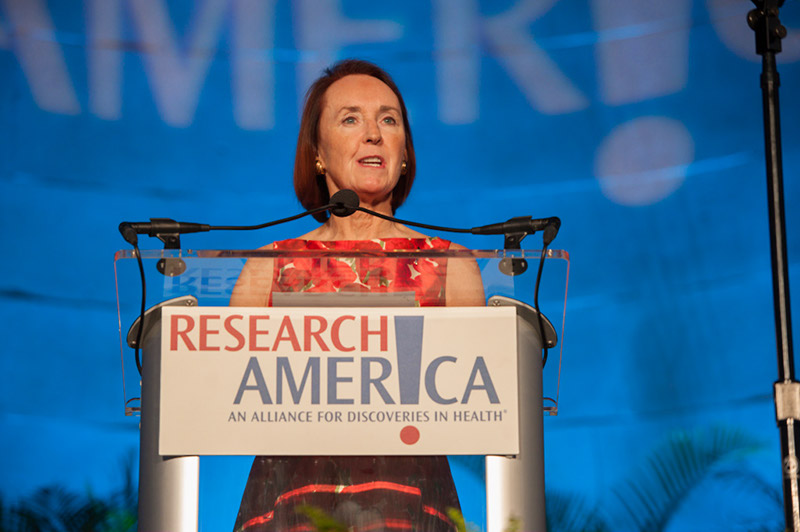Start by Asking

Dear Research Advocate,
We are at an inflection point in the pandemic; many people are asking, “Life seems to be getting back to ‘normal’ — are we almost to the finish line?” One response is that we must do more globally, a reality made all the more urgent by viral mutations such as the Delta variant.
(Read and share our latest blog post, a pithy overview of the science behind viral variants and stopping their spread. “The longer a virus continues to circulate unchecked, the greater the likelihood that a mutation will produce a more effective disguise — one less like a fake moustache and more like a ski mask.”)
The investigation into the origin of SARS-CoV-2 has become quite controversial. One thing is certain: the investigation should not inhibit or demonize the work of the scientists working to prevent future outbreaks. Today, the American Society for Microbiology issued a statement calling for a dispassionate effort to explore the origins of COVID-19 without undermining the research necessary to forestall future pandemics.
Don’t Make Assumptions: Testifying at a House Committee hearing on vaccine hesitancy, Research!America Board Member and APHA Executive Director Dr. Georges Benjamin discussed how the COVID-19 pandemic has reduced life expectancy for communities of color. He urged lawmakers and public health workers to start by asking, rather than assuming, what community members need to increase vaccination rates. He also stressed the importance of being honest with the unknowns as a way of building trust. “Tell [the public] everything we know, but tell them also what we don’t know,” he said.
Also on the Hill: Congress is in recess this week but work on FY22 appropriations, FY22 budget, and a host of legislative priorities continues apace. Congresswoman Diana DeGette (D-CO) and Congressman Fred Upton (R-MI) are seeking input on a set of questions to inform the ARPA-H section of their “Cures 2.0” discussion draft (full text; section-by-section summary). The deadline to submit a response is July 16. Alliance members had the opportunity today for a robust Q&A with the Congressional staff supporting the Cures 2.0 effort.
Reaching the Peak: Preparing for the future is the business of today, and it’s in everyone’s interest to support future generations of scientists. Last week we hosted “Reaching the Peak: A Science and Technology Career Summit,” a new event for early career researchers. The program was designed in response to questions young scientists are asking.
The Summit opened with a conversation with Research!America Board Member The Honorable Donna Shalala, former HHS Secretary and former Member of Congress, and Emeritus Research!America Board Member Elias Zerhouni, MD, former NIH Director.
Secretary Shalala: “It’s important to be well trained, but also to be cross-trained because that’s where discoveries are made… And always ask questions — that helped me enormously at HHS — because I knew how to ask questions, I could ask questions of the scientists, I could ask questions of the social scientists… and it made a big difference.”
Dr. Zerhouni: “I wanted to quit medical school until a professor showed me the first CAT scan in the world… and I just fell in love with it… it’s really important to fall in love with something.” Dr. Zerhouni shared how pursuit of what he loved led to a renowned career as a physician scientist, with careers in academia, government and industry. Leading the NIH for seven years, he focused on “the convergence of sciences, the breakdown of disciplines.” He said, “the more siloed you are, the less successful you will be.”
Sessions later in the day featured opportunities to ask questions of many other notable leaders, including Michelle McMurry-Heath, MD, PhD, Research!America Board Member and President and CEO of BIO; Sudip Parikh, PhD, Research!America Board Member and CEO of AAAS; and Larry Tabak, PhD, DDS, Principal Deputy Director of NIH. Read more about the Summit.
Equity in Science: Also working to strengthen the backbone and pipeline for science, “Black in X” is a network of more than 80 organizations focused on celebrating the work of Black people in STEM disciplines. One year after the Black in STEM movement started, Black scientists congregated during the virtual #BlackinX Conference to reflect on their work and what still needs to be accomplished to improve equity in the sciences. Research!America intern Sammy T. Mensah was one of the organizers of the event. Read more about the conference in Nature and Wired.
In other efforts to advance equity in the sciences, the National Postdoctoral Association will hold its 2021 Gender Equity Summit on July 12 & 13. Registration is free and open to all.
Upcoming Alliance Member Meeting (and Roundtable):
- On Tuesday, July 13, at 1:30 p.m. ET, Joni L. Rutter, PhD, Acting Director of the National Center for Advancing Translational Sciences (NCATS), will speak with us about her vision for NCATS, which is marking its 10th anniversary.
- The following day, on Wednesday, July 14, at 1 p.m., ET, Larry A. Tabak, DDS, PhD, Principal Deputy Director of NIH, and Tara A. Schwetz, PhD, Assistant Director for Biomedical Science Initiatives at OSTP, will join us for an alliance member roundtable discussion on ARPA-H. (Note this session is for alliance members only; if you’re not a member, you may be interested in a briefing being hosted by the Friends of the National Institute of Mental Health (NIMH) at the same time, “NIMH Funded Research Improving Care – From Bench to Bedside.”)
Stay well, stay safe, and stay connected.
Sincerely,
Mary Woolley




